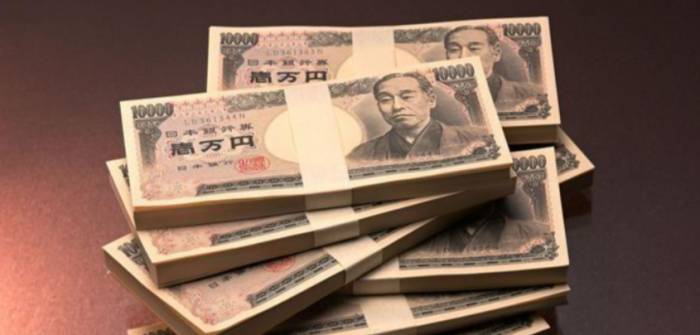Yen Breaks 140, Stocks Hit 30-Year High
Since the United States began raising interest rates last year, global stock markets have been continuously declining. The Japanese stock market experienced a very small drop last year and has even set a 30-year high this year.
The monetary policy of the Bank of Japan is also quite unique; it has not followed the Federal Reserve's continuous rate hikes but has been conducting monetary easing instead.
Recently, it is evident that the United States wants to make another effort to suppress the yen exchange rate to 140. However, the Bank of Japan may also take action in the near future to launch a counterattack.
01, 30-year high
Recently, the Japanese stock market has once again reached a 30-year high, with the highest point exceeding 32,700 points yesterday.
In fact, while most global markets were continuously declining in 2022, the Japanese stock market performed very strongly for most of the year, and its annual decline was also among the smallest in the major stock markets.
It is reported that the reason for the rise in the Japanese stock market is mainly due to the preliminary success of the economic policies introduced by the Japanese government, with market confidence gradually recovering.
Advertisement
The Japanese government has been actively promoting economic policies in recent years, including a series of economic stimulus measures. The implementation of these policies has led to a gradual recovery of the Japanese economy, with corporate profits also rising step by step.
In addition, the Japanese government has also strengthened trade cooperation with other countries, further enhancing market confidence.
According to analysis, the rise in the Japanese stock market is also related to the global economic situation.At present, global economic growth is sluggish, especially in Western developed countries, which may successively fall into recession. This has led to a significant outflow of capital from European and American markets in search of better investment directions, which also provides strong support for the rise of the Japanese stock market.
Not long ago, Buffett personally admitted that he is very optimistic about the Japanese stock market and has increased investment in the Japanese market.
In fact, the Japanese stock market hitting a 30-year high reflects the effectiveness of Japan's economic policies and also reflects the failure of the United States' harvesting strategy. Although it once suppressed the yen exchange rate to below 150, after the Bank of Japan intervened in September and October last year, the yen exchange rate rebounded strongly.
However, the United States is still unwilling to admit defeat. Recently, the US dollar index has risen slightly, once again pulling the yen exchange rate below 140.
02, Confidence comes from China
But now Japan has more confidence.
Recent official data from Japan shows that the tourism industry is recovering strongly, thanks to China's reopening of foreign tourism, which has brought a large influx of Chinese tourists to Japan.
In the past few years, Japan has relied on the development of the tourism industry to grow its domestic economy.
Looking at Japan's development, without the consumption of foreign tourists, the impact on Japan's economy would be very significant.
For example, last year, due to the impact of epidemic prevention and control, Chinese tourists hardly went abroad, which also led to a significant reduction in the number of tourists received by Japan, and Japan's economic development was very sluggish.After reopening this year, Chinese tourists have significantly contributed to the growth of Japan's tourism industry. On the other hand, the US dollar has suppressed the yen's exchange rate, which has both advantages and disadvantages. The devaluation of the yen has made it quite cost-effective to pay for Japanese goods with US dollars, which is a significant benefit for overseas tourists.

More importantly, Japan's inflation has finally reached the target set by the Bank of Japan, with recent inflation data even exceeding 3%. Due to the persistently low inflation in the past, the Bank of Japan had to remain inactive and did not follow the Federal Reserve's interest rate hikes. However, it is now very likely that the Bank of Japan will take action. Once the yen raises interest rates and the US dollar stops doing so, the yen's exchange rate against the US dollar will rebound significantly, with the US dollar index being suppressed.
At present, the United States still refuses to admit defeat, but if the above situation occurs, the US dollar index is very likely to quickly fall below 90. At that time, the scale of global sales of US Treasuries may become even larger.
Post Comment